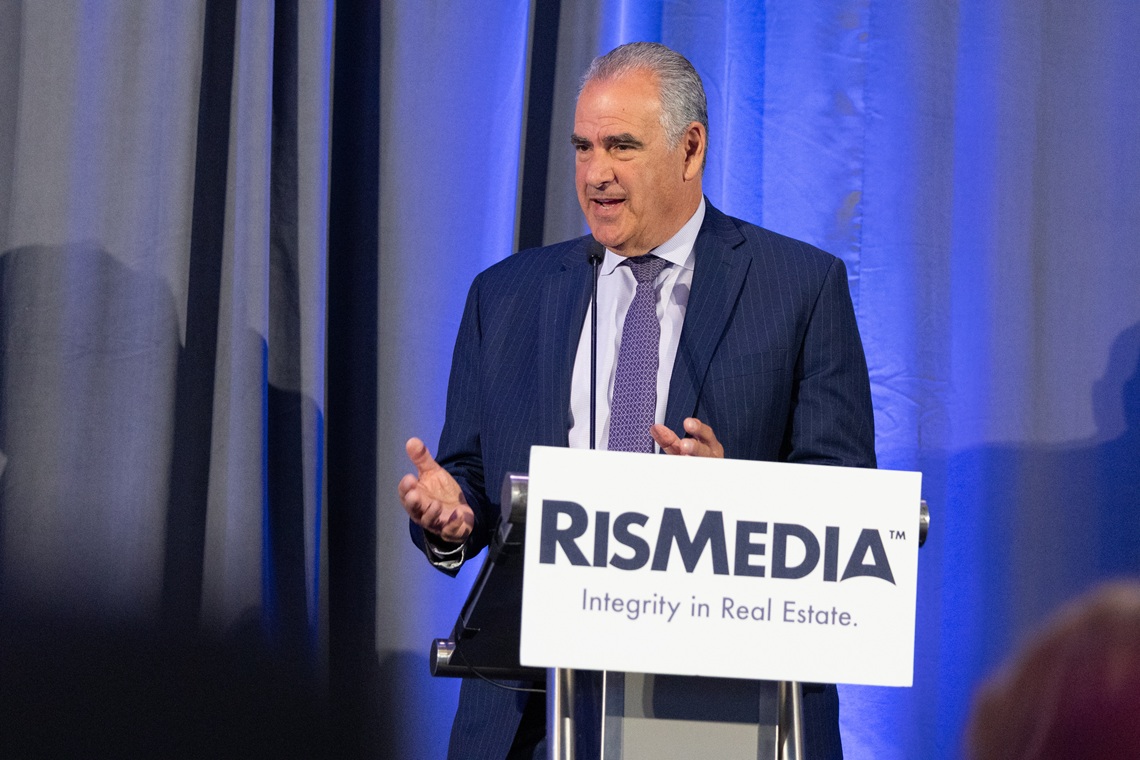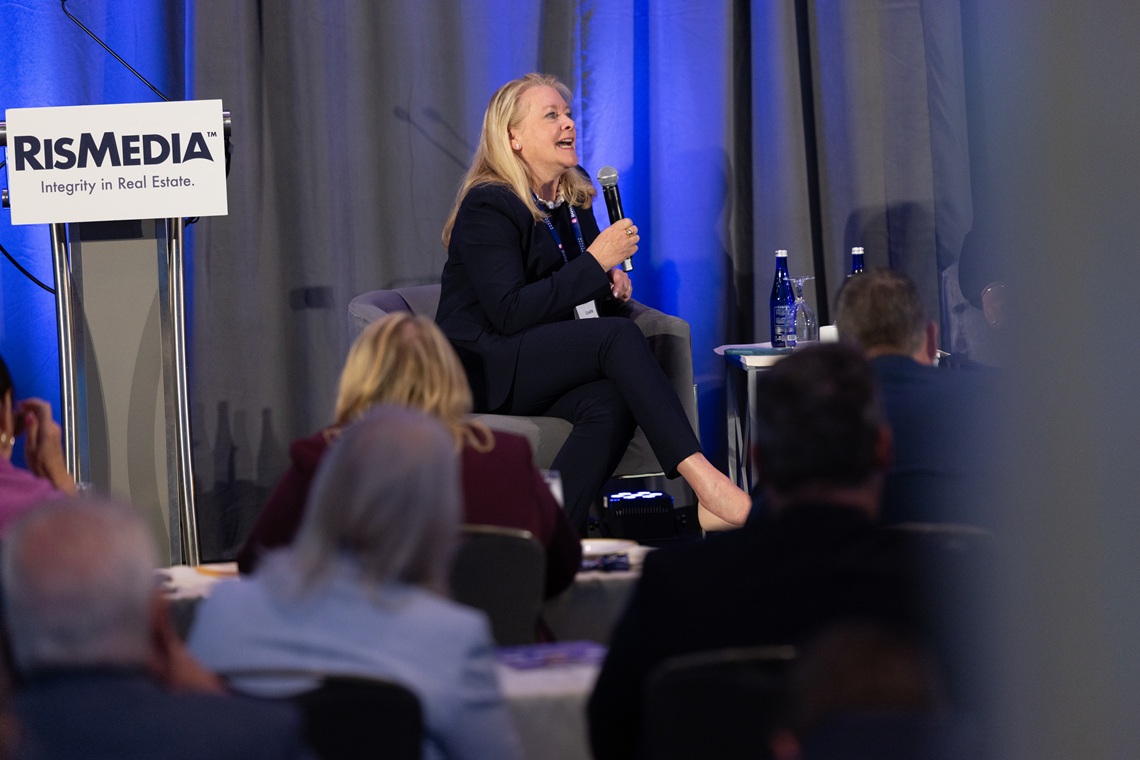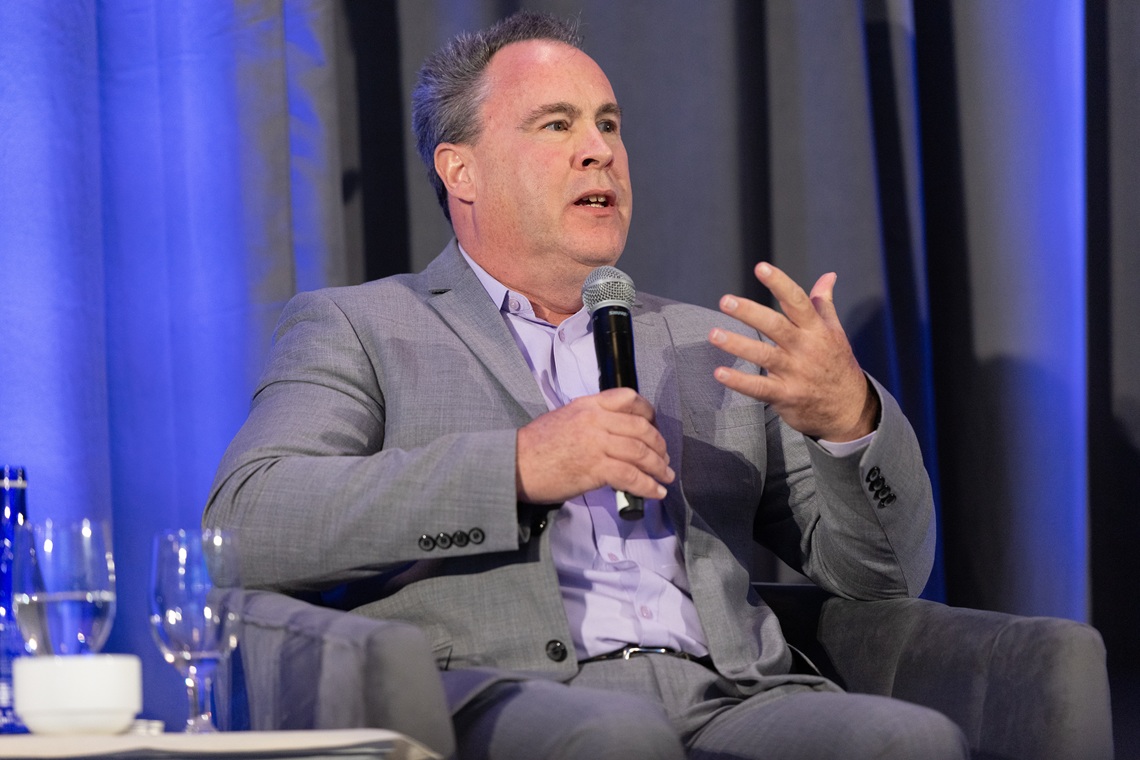Above, from left: Colette Stevenson, Holly Mabery, Marco Fregenal, Art Carter and Charlie Oppler. Photo by AJ Canaria.
In a panel discussion during RISMedia’s 37th Annual CEO & Leadership Exchange last week, top-level industry executives focused on the complexities and challenges surrounding the Clear Cooperation Policy (CCP). They debated its effectiveness in ensuring transparency and trust for consumers and highlighted the importance of rules and guidelines, with differing opinions on whether MLSs should enforce them, or if brokerages should take on that role.
Panelists for the session titled “The Future of Clear Cooperation and What It Means for Real Estate” included CRMLS CEO Art Carter; REsides CEO Colette Stevenson; Fathom Holdings, Inc. CEO Marco Fregenal; and eXp Realty SVP, Brokerage Operations Holly Mabery. Moderating was Prominent Properties Sotheby’s International Realty Managing Partner and CEO Charlie Oppler.

Above, Charlie Oppler. Photo by AJ Canaria.
The conversation also touched on the potential separation of MLSs from Realtor® associations to better serve local brokers and agents. Concerns about legal ramifications and the need for a national framework were raised, with some panelists advocating for a mandatory rule set across all MLSs. The discussion also included reflections on the evolving nature of the industry and the importance of focusing on ideas and growth rather than individual entities.
Key points made included:
- Transparency and truth for consumers. The panelists agreed that transparency and truth are most important for serving consumers’ best interests. They believe the CCP should aim to provide consumers with the most accurate and complete information.
- Unintended consequences. Some panelists cautioned that the CCP and related policy changes may have unintended consequences, such as increased legal risks and challenges for the industry. They emphasized the need to carefully consider these potential impacts.
- Consistency and enforcement. There are concerns about the lack of consistency in how the CCP is interpreted and applied across different MLSs and brokerages. The panelists suggested the MLS may be best positioned to enforce a standardized policy.
- Decoupling MLS from Realtor® associations. Some panelists foresee a potential decoupling of the MLS from the Realtor® associations, which could allow the MLS to better serve the evolving needs of local brokers and agents.
- Need for industry evolution. The panelists acknowledged that the real estate industry needs to continue evolving, both in terms of policies/regulations and the quality/professionalism of agents, to better serve consumers in today’s market.

Above, Marco Fregenal. Photo by AJ Canaria.
Fregenal cautioned about the potential for unintended consequences stemming from new policies, warning that a desire to give consumers more choice could open the door to a flood of legal challenges.
“It’s a fairly complex topic, partly because we’re trying to come up with a solution that addresses 100% of the consumers, but you’re never going to come up with a solution that addresses 100% of the consumers,” he said. “At the end of the day, you have to do what’s best for the majority of the consumers.”

Above, center, Holly Mabery speaks at RISMedia’s CEO & Leadership Exchange Sept. 3. Photo by AJ Canaria.
Mabery pointed out that it can be a slippery slope with clients when homes for sale are not being shown.
“If I’m not showing it and drive by, the client wants to know why I’m not showing them that house, or what I know about that house,” she said. “If I don’t have the ability at my fingertips to actually tell them about that house, then I’ve lost trust.”
Oppler asked Stevenson if she believed that CCP was best for the consumer.
“What’s best for the consumer ultimately is just truth and transparency,” she said. “The best thing is for us to support our brokers with the best information and technology and data so that they can effectively represent their products, services and properties.”


Above, top, Colette Stevenson and Art Carter. Photos by AJ Canaria.
Carter acknowledged the difficulty of enforcing consistent rules across a diverse brokerage landscape, recognizing the need for flexibility while upholding the core principles of transparency.
“There’s just not enough sales to keep everybody afloat in the marketplaces that we’re looking at,” he said, “so that, more than anything, is causing the issues when it comes to CCP, especially the amended policy.”
As the discussion progressed, it became clear that the panelists shared a common goal: to serve the best interests of both consumers and real estate professionals. However, they grappled with the delicate balance of maintaining established industry frameworks, adapting to changing market dynamics and navigating the complex web of regulations and legal concerns.
The back-and-forths highlighted the ongoing evolution of the industry, where technological advancements, shifting consumer expectations and the need for adaptable policies have created a challenging landscape for brokers and MLS organizations. With no easy solutions in sight, the panelists acknowledged that the conversation would likely continue in the years to come, as the industry strives to find the right balance between transparency, flexibility and the ever-changing needs of the real estate market.












